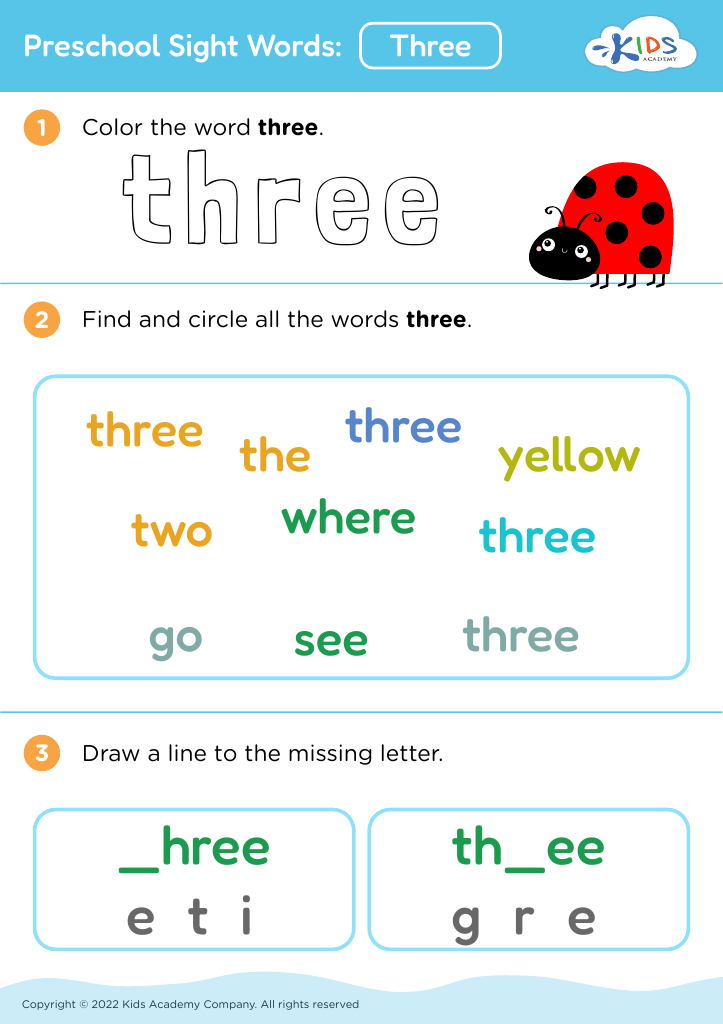Multiplication practice Building Vocabulary Worksheets for Ages 4-9
5 filtered results
-
From - To
Boost your child’s math confidence with our Multiplication Practice Building Vocabulary Worksheets, designed specifically for ages 4-9. These engaging resources combine multiplication skills with vocabulary development, making learning fun and effective. Each worksheet features colorful illustrations and age-appropriate exercises that guide young learners through the basics of multiplication while reinforcing important word recognition and usage. Perfect for classroom activities or home practice, these worksheets foster critical thinking and problem-solving skills. Help your child master multiplication concepts and expand their vocabulary simultaneously with our carefully crafted materials that inspire a love for learning in a supportive, enjoyable environment. Start an educational adventure today!
Parents and teachers should prioritize multiplication practice for children aged 4-9 because it lays a strong foundation for mathematical understanding and cognitive development. At this age, children are naturally curious and eager to learn, making it an ideal time to introduce multiplication concepts in engaging ways. Early exposure to multiplication helps children grasp the idea of repeated addition, paving the way for more complex mathematical concepts in the future.
Additionally, integrating vocabulary building into multiplication practice can significantly enhance literacy skills. As children learn multiplication terms like "times," "product," and "factor," they enrich their mathematical vocabulary, which supports overall communication skills. This dual focus not only helps children become proficient in mathematics but also fosters critical thinking and problem-solving abilities.
Furthermore, incorporating fun activities like games, songs, or interactive apps can make multiplication practice enjoyable and less intimidating, fostering a positive attitude toward math. When children find joy in learning, they are more likely to persist through challenges and develop a lifelong appreciation for education. Together, supportive adults can create an enriching environment that nurtures children's mathematical intuition and language development, preparing them for future academic success.





































